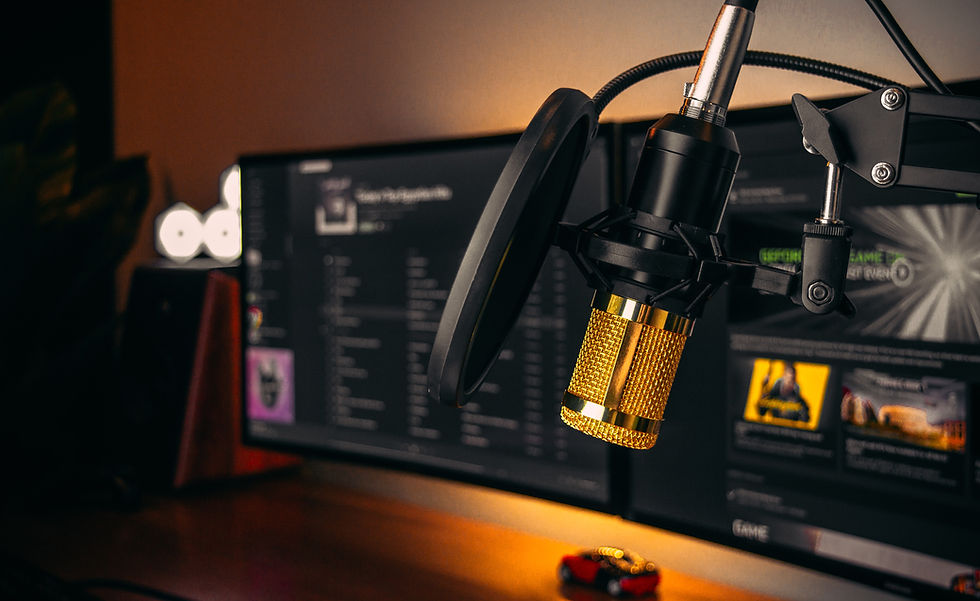How to Start Making Music: A Beginner's Guide
- jimithee212 .
- Jan 2, 2024
- 3 min read

Music is a universal language that has the power to evoke emotions, tell stories, and connect people across cultures and generations. If you've ever been inspired by your favorite songs or simply have a passion for creating music, then you're in the right place. In this beginner's guide, we'll explore the steps to start making music, regardless of your musical background or experience.
Find Your Musical Passion
Before diving into the technical aspects of making music, it's essential to identify your musical passion. What genre or style of music resonates with you the most? Do you want to sing, play an instrument, or produce electronic music? Take some time to listen to various genres and artists, attend live performances, and explore different instruments to find your musical niche.
Learn the Basics of Music Theory

While it's not mandatory to become a music theory expert, having a basic understanding of music theory can significantly enhance your music-making journey. Start by learning about notes, scales, chords, and rhythm. There are numerous online resources including this site, books, and tutorials available to help you grasp these fundamental concepts.
Choose Your Instrument or Tools
Your choice of instrument or digital tools depends on your musical interests and resources. If you're interested in playing an instrument, decide which one appeals to you the most, whether it's the guitar, piano, drums, or any other instrument. If electronic music production is more your style, you'll need a computer, music software (DAW - Digital Audio Workstation), and MIDI controllers.

Practice, Practice, Practice
No matter what instrument you choose, practice is key. Dedicate time each day to honing your skills and improving your technique. Whether you're learning to play chords on a guitar or mastering the intricacies of a DAW, consistent practice will help you progress and develop your unique musical style.
Study Your Favorite Artists
One of the best ways to learn and gain inspiration is by studying your favorite musicians and artists. Listen closely to their music, analyze their compositions, and try to recreate some of their work to understand their techniques and creative choices. This will help you develop your own musical vocabulary and style.
Start Composing or Covering Songs
Once you've gained some confidence and skill, start composing your own music or covering your favorite songs. Composing allows you to express your creativity and emotions, while covering songs can help you understand different song structures and styles. Don't be afraid to experiment and make mistakes; it's all part of the learning process.

Collaborate with Others
Music is often a collaborative endeavor, and working with others can be incredibly rewarding. Collaborations can involve other musicians, vocalists, producers, or even lyricists. Collaborative projects can open up new avenues of creativity and introduce you to different perspectives and skills.
Record and Produce Your Music
Recording and producing your music is the final step in the music-making process. If you're producing electronic music, this step involves arranging your tracks, adding effects, and mixing and mastering. If you're recording acoustic instruments or vocals, invest in a good quality microphone and audio interface. Learning to use recording software is essential for this stage.

Share Your Music
Once your music is ready, share it with the world. Platforms like SoundCloud, YouTube, and social media are great places to upload and promote your music. Engage with your audience, seek feedback, and don't be discouraged by criticism. Remember that every musician started as a beginner.
Keep Learning and Evolving

The world of music is vast and constantly evolving. To stay relevant and continue growing as a musician, never stop learning. Take our courses, meet our communities in the forum, study the workshops, and stay updated with industry trends and technologies. Be open to new experiences and embrace challenges as opportunities for growth.
Starting your journey into making music can be an incredibly fulfilling and creative endeavor. Remember that progress takes time, so be patient and persistent. With passion, practice, and dedication, you can turn your musical dreams into a reality. Embrace your unique style, share your music with the world, and enjoy the journey of self-expression through music.



Comments